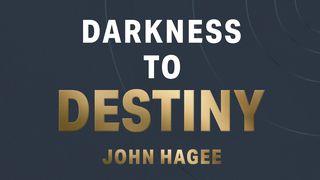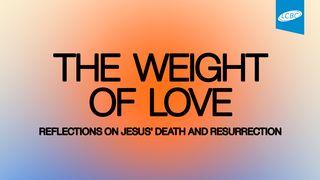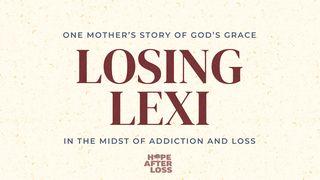Beautifully Broken- A Study For Special Needs ParentsSample

Who are the broken?
Imagine being crippled all your life, living with a family not your own, having no money or inheritance, feeling abandoned, unloved, & like you don't fit in. That's Mephibosheth's story. He's found in 2 Samuel 9:1-13. It could also describe multitudes of children living in orphanages all around the world who wait and hope for adoption. It could possibly describe your story too. Vastly different peoples and times, yet the stories share so much of the same: brokenness and belonging.
Mephibosheth is a minor player in the history of the Bible but his story is so very powerful. He is an orphaned grandson of King Saul, broken down by fear and disability. He is a cripple. David, at the height of his kingdom reign, wants to honor Saul's last remaining family member and so he asks Mephibosheth to come for a visit. Mephibosheth is living somewhere called Lo Dabar, which means "no thing". As soon as he gets to David's house he bows down before the king & asks what David would want with a broken, disabled and suffering man. David surprises him because he wants nothing from him. David wants to give him something.
David invites him to dine at his own dinner table, to feel loved, respected, and valued, as if he were his own son. David offers Mephibosheth a future and financial security by restoring land. Mephibosheth is taken from a place of no hope, from a town of no where, with no family, no inheritance, and no future. King David freely gives these missing elements to Mephibosheth and wants nothing in return for his generosity. Mephibosheth is adopted into the king's family as one of his own.
David entered into the trauma and brokenness of Mephibosheth's life to show him he had immense worth that went beyond what Mephibosheth could physically do. His disability did not define him and David wanted him to know that.
Does that sound familiar? It's a foreshadowing of Christ, who gives us a family and an inheritance from the Father when we can offer nothing in return for His graciousness except our own brokenness. God invites us while we are still yet sinners to enter His kingdom. We are not expected to be perfected before we accept His invitation. We are invited just as we are.
We can witness this foreshadowing played out in countless families today. Families following in the footsteps of the generous King by pursuing the "least of these" through adoption, amidst their suffering and brokenness. With the resolve to unashamedly share a spot at their table, these families adopt children as their own so they will know they are loved and chosen, valued and respected, no matter where they have come from. Brokenness and all.
God does not see anyone as less than because of special needs or a disability. Jesus's primary indication that he was the long awaited Messiah was his ministry with the disabled and the broken, the outliers of society. The parable Jesus tells in Luke 14:15-24 of a great banquet, in which the outcasts were invited in gives us a critical understanding of God's view of disabilities in His kingdom. He wants everyone at the feast no matter how your brokenness looks.
In the telling of the parable Jesus gave a new perspective to societies forgotten ones. Jesus is flipping the narrative. These were the people society had shunned, considering them sinners & under judgement from God. They would have never considered inviting these people to sup with them. Sitting around the table at their own private dinner, eating off his every word, Jesus surprises his Jewish friends with the story. He tells them they have an entirely wrong idea about who belongs at the table.
The people they wouldn't have been willing to dine with are the exact ones Jesus says should be sitting in the seats. It would have been an eye opening statement. It was counter-culture. Jesus is explaining to them that disabilities are never seen as "less than" in God's eyes. Jesus is telling his followers the broken belong. They are just as valuable and worthy of a place with the King as anyone else. They don't need to hide or ignore their differences to be able to dine at the table.
The disabilities and brokenness that people experience means society might see them as less. But society has a very flawed view on value. Our care of our own special needs children should remind us of our own brokenness, because we are all broken, and the seat awaiting us at God's table.
Reflection:
Do you think of broken or weak people as being disabled?
About this Plan

Wondering why me and what the Bible has to do with my child with special needs? We'll discuss the deep topics of brokenness, suffering, and disabilities while learning about providence, sovereignty, God's image, and grief. Challenge yourself to see your struggles as a special needs parent in a new light with confidence that your child has been fearfully and wonderfully made.
More
Related plans

Darkness to Destiny: Unleashing God’s Power in a Dark World

Celebrate Everything: 3 Days to Joyful Living

Have Faith

DON’T FIGHT ALONE: How Isolation Keeps Us Stuck in Anxiety and Why Community Helps Us Win Mental Battles

The Weight of Love: Reflections on Jesus' Death and Resurrection

Huge Hope: Major Power in the Minor Prophets

Losing Lexi: One Mother's Story of Grace in the Midst of Addiction and Loss

If Jesus Is Your Friend

Commissioned: Passion to Purpose: Living the Great Commission
